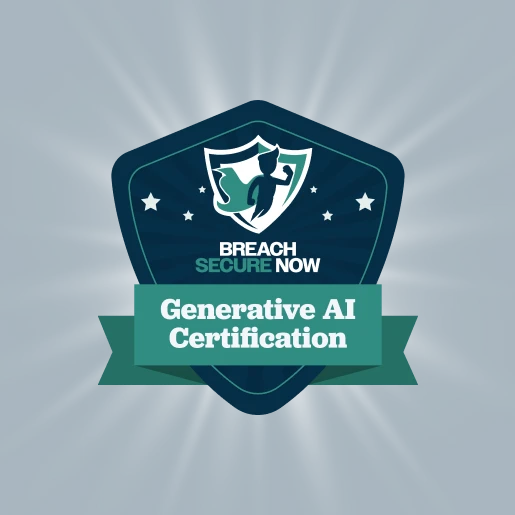

Exclusively for Our MSP Partners
Now Available: Gen AI Certification From BSN
Lead Strategic AI Conversations with Confidence
Breach Secure Now’s Generative AI Certification helps MSPs simplify the AI conversation, enabling clients to unlock the value of gen AI for their business, build trust, and drive growth – positioning you as a leader in the AI space.
A hacker claims to have stolen every Social Security number (SSN). This alarming breach has sparked significant concerns, with potential implications for identity theft, financial fraud, and other malicious activities. Here’s what happened, what it means, and how to protect yourself.
What Happened?
According to recent news reports, a hacker on an underground forum has claimed to have stolen the SSNs of over 330 million Americans. They are threatening to release this information unless a ransom is paid. While the extent of the breach is still being investigated, this incident underscores the vulnerability of personal data and the lengths to which cybercriminals will go to exploit it.
Why It Matters
Your Social Security number is a critical piece of your identity, used for everything from applying for credit to filing taxes. If your SSN falls into the wrong hands, it can lead to devastating consequences, including:
- Identity Theft: Criminals can use your SSN to open new accounts in your name, apply for loans, or even receive medical care.
- Financial Fraud: Hackers can access your bank accounts or credit cards, leading to significant financial loss.
- Tax Fraud: Fraudsters can file false tax returns using your SSN, potentially leading to legal issues and lost refunds.
What You Can Do to Protect Yourself
Given the seriousness of this breach, it’s essential to take proactive steps to protect your personal information. Here are some actions you can take:
- Monitor Your Credit Reports: Regularly check your credit reports for unusual activity. You can obtain free credit reports from the three major credit bureaus—Equifax, Experian, and TransUnion—through AnnualCreditReport.com.
- Place a Fraud Alert: If you suspect that your SSN has been compromised, consider placing a fraud alert on your credit file. This will notify creditors to take extra steps to verify your identity before opening new accounts.
- Consider a Credit Freeze: A credit freeze prevents creditors from accessing your credit report, making it harder for identity thieves to open accounts in your name. You can easily freeze and unfreeze your credit through the major credit bureaus.
- File Your Taxes Early: Filing your taxes as soon as possible can help prevent tax-related identity theft. If a criminal tries to file a return using your SSN, they will be blocked if you’ve already filed.
- Use Identity Theft Protection Services: Consider enrolling in an identity theft protection service. These services monitor your personal information and alert you to potential fraud.
- Be Wary of Phishing Scams: Hackers often use phishing emails to trick people into revealing sensitive information. Be cautious of unsolicited emails or phone calls asking for your SSN or other personal details.
- Stay Informed: Keep up with the latest news and updates about the breach. The situation is evolving, and being informed will help you take timely action.
This breach is a reminder of the ongoing threat to our personal information. While we can’t always prevent data breaches, we can minimize the risk and protect ourselves from the fallout.


